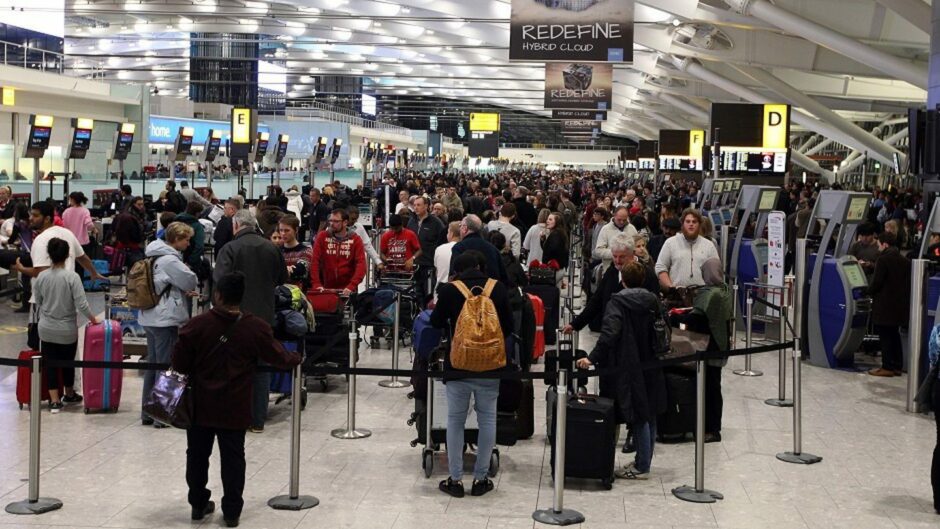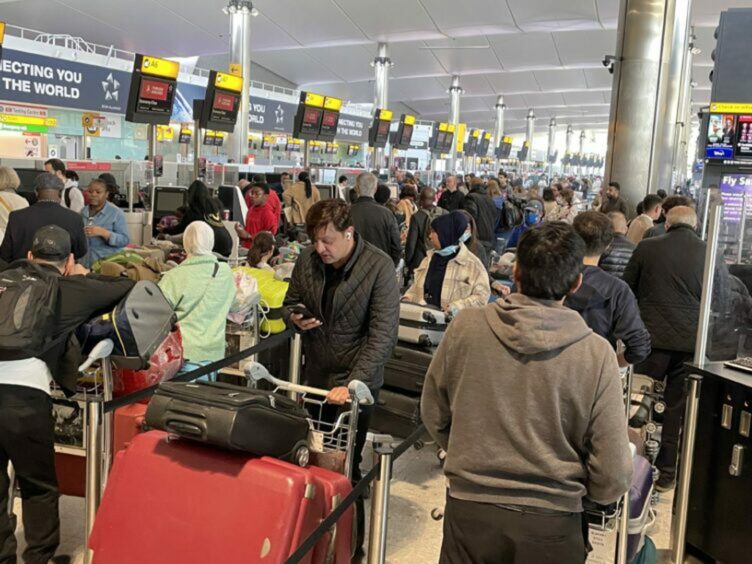
An Aberdeen firm specialising in energy industry travel requirements says massive disruption may continue to hinder the sector until the end of 2022.
Following warnings it has received from airlines, Munro’s Travel is cautioning that chronic problems currently plaguing the rail and aviation industries mean essential workers could be impacted beyond the summer and into the fourth quarter of this year.
Essential workers enduring complicated travel
Managing director Murray Burnett added: “The travel challenges which are being caused currently by capacity issues and schedule disruptions across the UK and rest of Europe are not only being experienced by summer holidaymakers.
“Essential workers in the energy sector who need to arrive at their destination for crew changes are also experiencing complications.
“This is in order to plan for continuing capacity restrictions on major crew change flows and associated travel sooner than usual for the September to December 22 period.”
Mr Burnett cited the current wave of rail strikes as an example of how energy workers in the north and north-east are struggling to travel to airports.
Perfect storm of travel troubles
A perfect storm of chronic staff shortages, ongoing disruption from Covid-related absences and brewing industrial relations unrest which has been simmering all year, means energy workers are finding travel particularly challenging.
Mix this in with a cocktail of pilot and ground crew strikes, coupled with airports axing capacity and oil, gas and energy crew rotations take on a new level of complexity.
A massive walk-out in Germany saw all Lufthansa flights grounded yesterday, while further afield airport crew and baggage handlers are threatening to down tools at major Australian destinations.
Mr Burnett added: “Take, for example, a long-haul passenger who has a flight leaving on Tuesday but landing in Germany today for a connecting flight. They will find their first flight was cancelled even though the strike had not yet commenced.
‘Immensely difficult period’
“Thirty-two flights from Frankfurt yesterday have already been cancelled, with a further 646 today. Munich faces a further 200 today. Lufthansa is already warning of the effects of the strike lasting all this week.
“These capacity issues come on the back of an immensely difficult period for the oil, gas and energy sector during Covid, when crew changes were complex and often costly – with arranging charter transport, time spent on visa issues, flights via multiple ports and downtime when crew changes were not completed.
“The airlines may want clients to plan crew changes for the remainder of the year now. But it’s just not that simple.
“It’s causing untold problems for travellers, however, our team is working to support our clients throughout this very difficult period, bearing in mind there are capacity caps in place at many international airports limiting passenger numbers.”
Mr Burnett stressed it was “more important than ever” for energy companies in the north and north-east to maintain their duty of care to staff in the face of delays, diversions and cancellations.
Tracking tools useful if re-routing
The Munro’s Travel MD added the role of passenger tracking tools “comes into its own at a time like this” when companies need to know the current location of individual members of their teams, both to check on their safety and how they can re-route them to their destination using alternative flights.
Established in 1903, Munro’s has a client base of more than 300 energy sector organisations.
 © Supplied by Munro?s Travel
© Supplied by Munro?s Travel © Supplied by airport
© Supplied by airport